In this issue of the MurthyIndiaBulletin, we will look into one of the most common visas applied at U.S. consulates across the globe – B1/B2 visa. B1 visa is for persons visiting the United States temporarily for business related activity. B2 visa is for person(s) visiting US for pleasure or family visits or for medical treatment in some instances.
B1/B2 applicants subject to the presumption of immigrant intent:
All applicants for B1 or B2 visa are subject to the presumption of immigrant intent under section 214(b) of the Immigration and Nationality Act. Effectively, the applicant needs to establish that s/he has strong and compelling reasons to return to the home country / country of residence. The applicant will have to establish that s/he intends to visit the United States for a specific period and purpose permissible under the category applying for, that s/he has adequate resources to take care of his / her expenses on the trip including return ticket to the home country / country of residence.
Fees and Forms:
The visa application fee is the equivalent of US$ 131 (As of the writing of this article the exchange rate is INR 48 to one US$). Applicants applying for the visa in India need to pay the VFS service fee of INR 374.
Each applicant will have to complete the visa application form DS-156 online using the VFS system if applying at a U.S. consulate or embassy in India. In some instances, if specifically instructed, applicants may have to use the e-version of the form available online. Applicants aged 15 to 55 need to complete supplemental form DS-157 in addition to the above form. Regular readers of MurthyIndiaBulletin may recollect that we covered this application procedure and tips of completing the forms more elaborately in our earlier issue.
Documents in support of the application:
Applicants must understand that the visa officers rely on information provided on the visa application form DS-156, supplemental form DS-157 and by the applicant at the visa interview to adjudicate an application. Carrying voluminous documentation does not guarantee a visa and in majority of the applications, the probability of the visa officer looking into the supporting documents is very less. However, if the visa officer wishes to verify some information provided s/he may request for documents and it is advisable to carry relevant supporting documents and produce only if the same is specifically requested for.
For B-1 visas:
Persons applying for B1 visas should carry documents to establish their relationship with the organization, appropriate letters from the Indian / US entities detailing the necessity for the travel. It is also good to carry document to evidence who will be responsible for the expenses of the applicant on the business trip.
For B-2 visas:
Persons who wish to visit the U.S. for pleasure or for family visit, should carry documents to evidence the financial ability to take care of the expenses on the trip. Applicants should also carry documents to show their strong ties in their home country or country of residence. If they are visiting a close relative, then documents to evidence the legal status of the relative would be useful. In case of medical treatment, documents to evidence unavailability of treatment in India along with specific appointments with doctors in the U.S. and documentation of resources through which the applicant will manage the expenses is important.
Information provided on forms and documents:
One has to be truthful while providing information in the visa application forms, at the visa interview and on the supporting documents. Information provided on the forms is under penalty of perjury and any false information would result in a permanent ineligibility from entering the U.S.
Administrative Processing in some cases:
Applicants having experience/educational background in biotechnology, nanotechnology, army, navy or other sensitive areas may be subject to Security Advisory Opinion (SAO). There are some other instances when information / documentation need additional verification and the in such instances also, the application may be kept pending until the administrative process is completed under Section 221(g) of the Immigration and Nationality Act. Regular readers of MurthyIndiaBulletin may recollect that we discussed on the response to SAO requests in our earlier issue.
Post visa issuance:
If a B1/B2 visa is issued, this entitles to applicant to board a airplane and present himself / herself at the port-of-entry and seek admission. The US Customs and Border Protection officers decide on admitting the person to the United States and the duration for which s/he should be admitted and issue an i-94 card indicating the class of visa admitted under and the duration for which one is allowed to stay in the United States.
Re-application if visa is refused:
If an application for B1/B2 visa is refused under Section 214(b) of the Immigration and Nationality Act, there is no restriction on a person reapplying for a visa. However, applicants must understand that unless there is a change of circumstance or some strong additional information in the applicant’s favor which was previously unavailable, the possibility of a positive reapplication is limited.
Conclusion:
Applicant has to communicate effectively about his/her strong ties at every given opportunity to overcome the presumption of immigrant intent and to establish the purpose and means of visit. An honest application and effective communication maximizes the possibility of a visa issuance.
